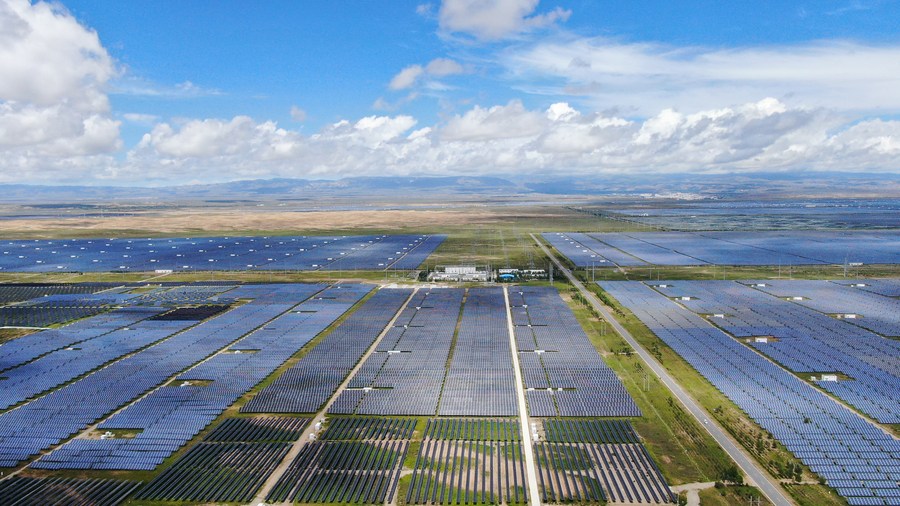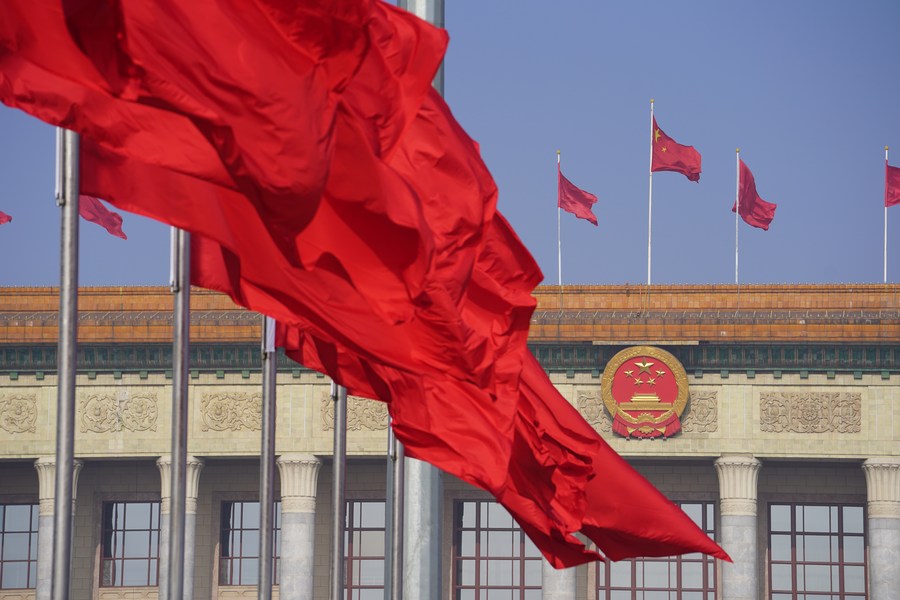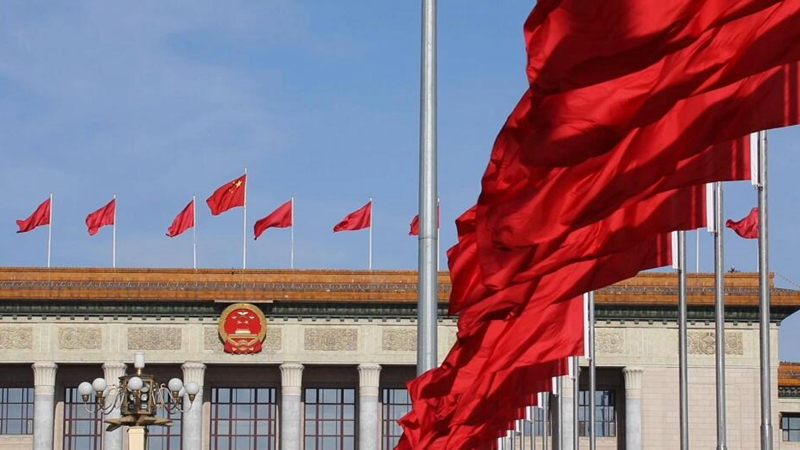
Aerial photo taken on Aug. 17, 2020 shows a photovoltaic power station at a green industrial development park in the Tibetan Autonomous Prefecture of Hainan, northwest China's Qinghai Province. (Xinhua/Zhang Long)
GREEN DEVELOPMENT
A complete economic and societal shift to cleaner energy and fewer polluting emissions conforms to the people's expectations for high-quality development.
Last year, China announced that it would strive to peak carbon dioxide emissions by 2030 and achieve carbon neutrality by 2060.
To that end, carbon emission control has been included in China's top policy priorities for 2021.
In January, Minister of Ecology and Environment Huang Runqiu said the country has begun formulating an action plan to peak carbon dioxide emissions before 2030 and will accelerate the transformation toward green and low-carbon development across China's society over the next 10 years.
Wu Gang, a member of the CPPCC National Committee and chairman of Xinjiang Goldwind Sci & Tech Co., Ltd., said he had submitted proposals on achieving carbon neutrality and would discuss with fellow political advisors about building a clean and diversified energy supply system.
LEGISLATION
As the highest organ of state power, the NPC exercises various functions and powers including enacting and amending basic laws.
In 2019, the NPC session adopted the Foreign Investment Law. Last year, the milestone Civil Code was adopted.
The upcoming session will see lawmakers deliberate draft amendments to the organic law and procedural rules of the NPC, which deal with the operations of the country's top legislature.
According to sources from the top legislature, the draft amendments assimilate effective practices in legislative processes, such as making NPC sessions more open and efficient.













